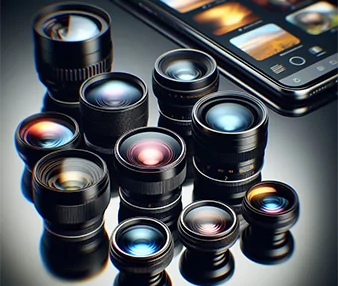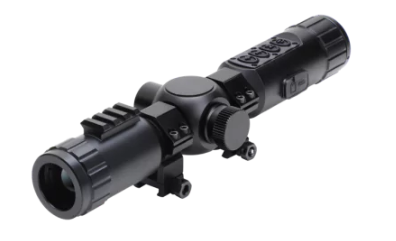
Request


img.Unveiling the Truth Can Thermal Imaging See Through Walls.webp
Thermal imaging, sometimes called infrared imaging, picks up the warmth coming from objects and living things. Unlike regular cameras that need sunlight to work, these gadgets catch infrared rays—a type of energy every object lets out depending on its heat. This clever method turns warmth into pictures, with hot spots showing up in bright hues and cool areas in darker shades. People use it to find heat leaks in homes, follow animals at night, or help firefighters see through smoky scenes. If you enjoy nature, work in security, or just like learning new things, getting to know thermal imaging gives you a neat new way to look at the world.
The fun part comes from special sensors that grab those infrared waves. They don’t need daylight, so this tech fits perfectly for nighttime use. You might wonder how far it can go or what it reveals. Let’s check out the common questions, especially the big one: can it see through walls?
Movies often make it look like thermal cameras can peek through walls like magic. That’s not true, though. Thermal imaging can’t see through walls. Thick stuff like brick, concrete, or wood—especially when insulated—blocks those infrared rays. Point a thermal camera at a wall, and you’ll only see the heat on the surface, not what’s behind it.
There’s a little catch, however. If something inside, like a water pipe or wiring, causes a clear temperature change, the camera might notice it on the outside. Home inspectors use this trick to spot leaks or poor insulation without breaking anything. The warmth has to affect the wall’s outer layer, though. For everyday life, don’t expect to spy on the next room. This keeps thermal imaging practical and real.
Thermal imaging technology unlocks a hidden world of heat signatures, transforming invisible infrared energy into clear visual data. This powerful capability allows us to see through smoke, navigate fog, and operate in total darkness, overcoming limitations that hinder conventional vision and photography. From saving lives in rescue operations to enabling innovation in industry, thermal imaging reveals what the eye cannot see.
Thermal imaging stands out in tough situations. Smoke, loaded with soot, stops visible light but lets infrared pass through. Firefighters rely on this to move through burning buildings, finding heat from people or dangers. Fog and rain can scatter infrared, cutting the camera’s reach a bit, but it still beats human eyes or regular cameras in misty weather. Drivers in self-driving cars get help here, as thermal sensors handle fog better than headlights.
Glass acts like a mirror for infrared, bouncing heat back instead of letting it through. Aim a thermal camera at a window, and you’ll see your own heat reflection—not the room inside. Shiny metal does the same thing. Matte or painted metals, though, show the real warmth, making it simpler to check for overheated machines or pipes.
Concrete blocks infrared like walls, but a warm pipe or heating system underneath can leave a faint hint on the surface. Trees stop thermal imaging through their trunks, yet it’s great at spotting heat signs—like a hiker—among branches. Search-and-rescue teams use this to find lost people in thick forests, where light doesn’t work.
Thin plastic, like a trash bag, lets infrared through, letting you see warm stuff behind it—a cool trick for demos. Thicker plastic stops it, though. Best of all, thermal imaging works in total darkness. No light is needed—just heat—and that’s why it outshines night vision in pitch-black moments.

For photographers, hunters, or security folks, mastering thermal imaging sets you apart. Clear night shots of wildlife or sharp checks of property lines build a strong personal brand. Share your tips online—post cool pics or simple guides—and watch your name grow. Businesses can show off smart security tricks, drawing in clients who like high-tech gear. It’s more than a tool; it’s a way to shine.
This tech also saves time. Spotting heat leaks or animal tracks without digging around impresses clients and friends. With regular use and shared successes, you can become a go-to expert, lifting your personal and work reputation over time.
Picture yourself tracking a deer at dusk. A thermal camera lights up its warm body against the cool forest, even with a touch of fog. Or imagine a home inspector finding a hidden leak by noticing a warm spot on concrete. These real-life examples show how handy it is. Hunters get better shots, homeowners avoid big repairs, and security teams stay safer—all with one device.
It starts with the camera’s sensor grabbing infrared data. Software then adds colors, making heat patterns easy to read. Practice helps you understand these images, turning raw info into smart choices. Whether for fun or work, this hands-on feel builds your confidence and skills.
Before we dive deeper, let’s mention a reliable source for thermal scopes. Hemusun Optical Instrument Co., Ltd. is a name you can trust in this field. Based in China, they put heart into researching, building, and perfecting high-quality optical gear, including thermal scopes for outdoor lovers. Their team mixes new ideas with strict quality checks, ensuring products fit needs like hunting or security. With a global reach and a focus on customer support, they’re a solid choice for anyone exploring thermal imaging. Visit site to learn how they craft their tools with care.
Hemusun takes pride in how they make thermal scopes. Their factory uses modern equipment and skills, focusing on designing and creating top optical products. They boost performance with careful processing and special coatings. Every step—cutting, grinding, polishing, and more—gets a thorough check to keep quality high. They also offer help like repairs and tech advice, keeping your gear in great shape. This careful process, led by a skilled team, makes their thermal scopes dependable for any adventure.
Step | What Happens |
|---|---|
Design & Planning | Coming up with ideas for great tools |
Material Prep | Gathering and testing raw stuff |
Processing | Cutting, grinding, and polishing |
Coating | Adding special layers for better clarity |
Assembly & Testing | Putting it together and checking it out |
Quality Check | Final look to ensure it’s top-notch |
Thermal imaging opens up a hidden world of heat, bringing real benefits without wild promises. It can’t see through walls or solid barriers, but its ability to catch surface heat changes, cut through smoke, and work in darkness makes it a treasure. Whether you’re a hobbyist or a pro, this tech lifts your skills and strengthens your name. Understanding its limits and strengths is the first step to using it well.
No, thermal imaging can’t peek through walls. It picks up heat on the surface, so only big temperature shifts—like from a pipe or leak—might show up. Forget seeing inside like in movies!
Yes, it beats visible light in fog, though range might drop due to water drops. It’s a great tool for outdoor fun like hunting or driving in misty weather.
Perfectly! It uses heat, not light, so it’s ideal for night use. This makes it a top pick for spotting wildlife or patrolling after dark.